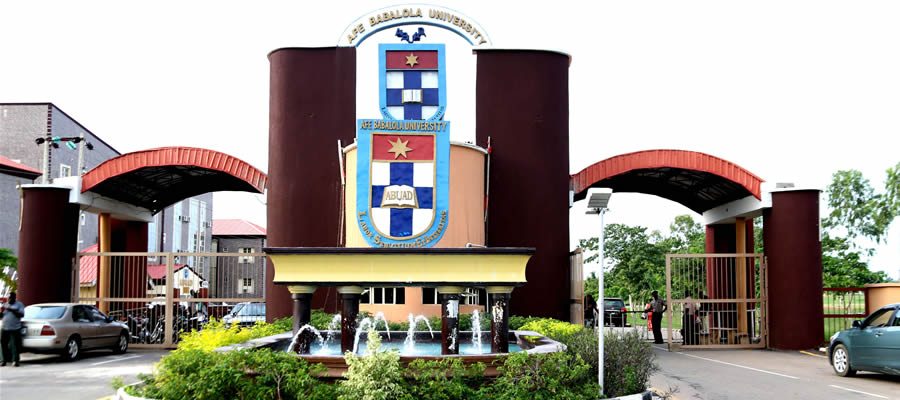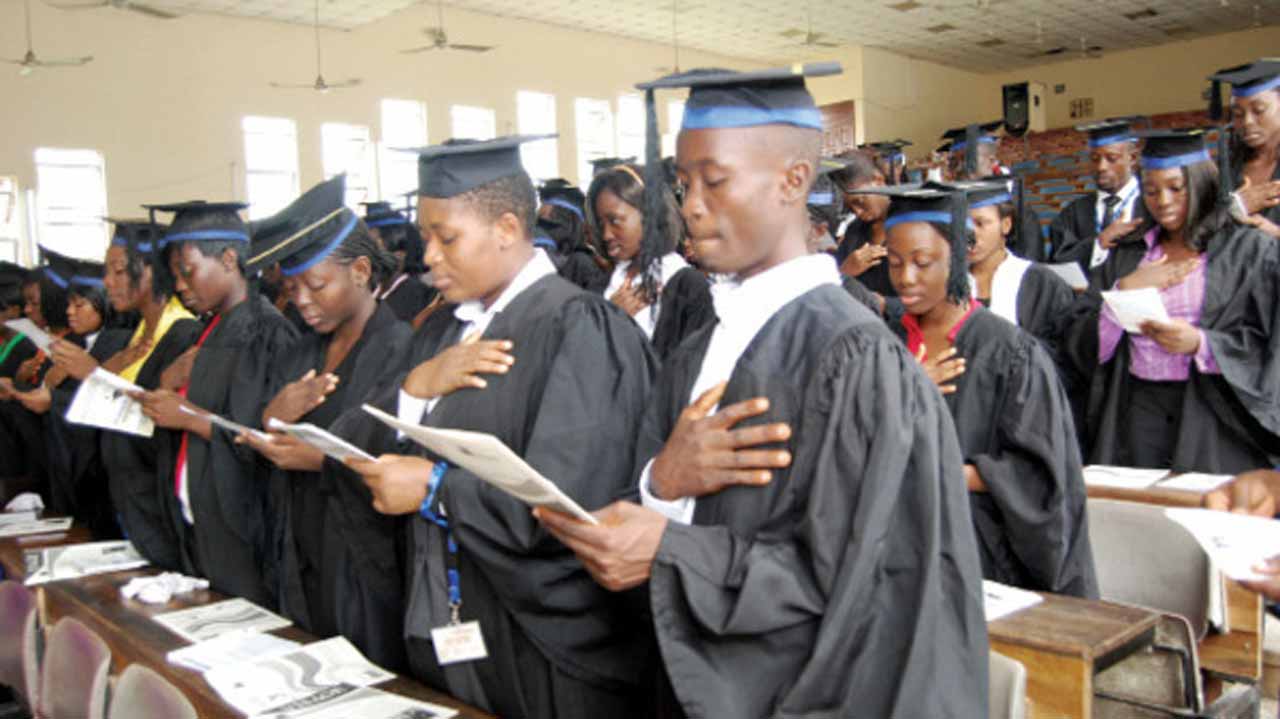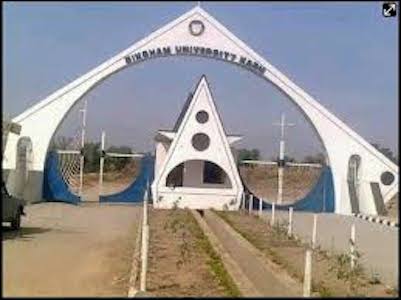Education
Bingham University graduates 78 first class in 4 years

The Vice Chancellor, Bingham University, Karu, Nassarawa State, Prof. William Qurix, says the institution has produced 78 first class students in four years.
Qurix disclosed this at a news conference in Karu on Thursday to herald the the 4th Combined 2018 to 2022 Convocation Ceremony of the institution.
Speaking on the convocation scheduled to hold on Nov.
5, Qurix also said the school from 2017 had expanded from its initial five faculties to 12 faculties.In all, he said the institution had produced a total of 2,250 graduates and 327 postgraduates respectively.
Apart from the 78 first class, he said others were: 586 second class upper, 843 second class lower 512 third class, eight pass and 223 medical doctors.
” From the 2018/2019 academic session, the school has produced 28 first class, 194 second class upper, 271 second class lower, 51 third class and 76 medical doctors.
” In the 2019/2020 academic session, we have 22 first class, 154 second class upper, 259 second class lower, 239 third class, five pass and 51 medical doctors.
” The 2020/2021 academic session has 18 first class, 125 second class upper, 169 second class lower, two pass and 48 medical doctors.
” 2021/2022 academic session has 10 first class, 113 second class upper, 144 second class lower, 38 third class, one pass and 48 medical doctors,” he said.
He called on Nigerians to key into the various scholarship schemes provided by the institution as a way of increasing their access to education.
He said that the scholarships were in the form of discount from school fees, particularly to indigent students.
While also speaking on the partnership to enhance exchange of studies, Qurix said the institution has active collaborations with Sumy State University, Ukraine, Liverpool School of Tropical Medicine, UK and others for medical students transfer.
He added that the university had been able to secure a lot of grants in the last four years to be able to engage in research, geared toward the advancement of the country.
” From April 2016 to March 2019, the university had received one stop shop of € 1.4 million for the same day diagnosis and management of Tuberculosis and HIV from European developing countries.
” From April 2017 to March 2018, it also received to the tune of $400,000 for the increasing TB diagnosis and treatment of poor population by engaging proprietary patient medicine vendors in Nigeria.
” These are among the many grants received for research in the various field,” he said.
Qurix revealed that the Nursing Department access road, constructed faculty of basic medical sciences building and ultra modern new hostel with 660 capacity, among others would be commissioned as part of activities for the convocation.
He, therefore,commended the school’s Board of Trustees (BOT), Governing Council, NUC and JAMB for their support throughout his period of five years as the vice chancellor of the institution.
However, when asked if the faith-based institution was opened to only members within the religion, the vice chancellor explained that it is open to other faith so long they would keep to the regulations set up by the institution. (NAN)
Education
ICPC, COREN Working to Curb Quackery in Engineering – Don

Former Registrar, Council for the Regulation of Engineering in Nigeria (COREN), Prof. Adisa Bello said the council is collaborating with the Independent Corrupt Practices Commission (ICPC), to curb quackery in Nigeria.
Bello stated this in Bauchi on Monday during a public lecture and launching of a magazine by the final year students of Engineering Department, Abubakar Tafawa Balewa University (ATBU), Bauchi.
According to Bello, COREN has an Engineering Regulatory Monitoring Unit visible and working in 29 states of the country.
“If the unit finds anyone culpable of quackery, the person will be handed to the ICPC for further prosecution.
“COREN with the council for regulation of Engineering in Nigeria started in 1970, and its laws were amended in 1992, 2004 and 2018.
“The specific one I’m referring to is the amendment in 2018, which categorically gave COREN the mandate to prosecute offenders of engineering,” he said.
He warned that anybody that was not a registered practitioner in engineering and practicing engineering would be prosecuted by COREN.
“And COREN is doing everything humanly possible to ensure that this is done. COREN currently has a memorandum of Understanding with the Independent Corrupt Practices Commission, and this commission is doing everything possible to ensure that offenders are prosecuted,” he said.
Bello, also a lecturer in the department of Mechanical Engineering, ATBU, recounted how a multi-billion Naira 21 storey building collapsed in Lagos, where COREN did investigation, after which some engineers were found wanting and handed over to the ICPC for prosecution.
“COREN has an investigative panel and once this panel establishes that someone is culpable, it takes you to the ICPC and then straight to the court.
“In my day, we normally write examinations for qualifications.
”We have a situation currently where an individual came with a fake result and we called on the ICPC and they have done all their investigations, and found the person culpable and right now he is under prosecution,” he said.
The don called on higher institutions and academics to ensure that all engineering programmes were properly accredited by the National University Commission (NUC) and COREN.
In a paper entitled: Smart Cities and the role of Engineering and Technology in building the Urban future, Dr. Ibrahim Ikara, Head of Department, Civil Engineering, ATBU, said engineers played a critical role in smart cities.
Ikara said that this could be through the design of modern infrastructure, disaster resilient systems and eco-friendly neighborhoods.
Represented by Muhammad Suleiman, the don listed some of the challenges of building smart cities in developing nations to include infrastructure deficit, limited funding, and low level of digital literacy among citizens.
He urged policymakers to prioritise Science, Technology, Engineering and Mathematics (STEM), to achieve the set goals.
Education
Afe Babalola Canvasses Better Education Sector to Check Insecurity

Founder of Afe Babalola University, Ado-Ekiti (ABUAD), Afe Babalola, has identified Nigeria’s declining educational standards as a key driver of the country’s escalating crime rate.
The legal luminary spoke recently during a courtesy visit by a delegation from Ekiti State University (EKSU), led by its Vice-Chancellor, Prof.
Joseph Babatola Ayodele.According to him, “half education is more dangerous than no education.
Many of those engaged in criminal activities today are products of a failing educational system. We must urgently rewrite Nigeria’s educational narrative to foster national development and security.”Babalola challenged policymakers, institutions, and stakeholders to prioritise research grants, innovation, and academic excellence as critical tools for national progress.
In her welcome address, ABUAD’s Vice-Chancellor, Prof. Smaranda Olarinde, lauded Babalola’s visionary leadership, crediting him for establishing the university as a trailblazer in agriculture, pharmaceuticals and quality healthcare education and delivery.
She spotlighted the peerless and paperless ABUAD Multi-System Hospital, which leading healthcare stakeholders have endorsed as the “Well-equipped hospital in Sub-Saharan Africa” as the nation’s antidote to medical tourism.
Taking cognisance of the under-representation of women in the visiting EKSU delegation, the Vice Chancellor canvassed greater gender balance in leadership, just like in ABUAD, where the Vice Chancellor, Registrar and the Librarian are ladies among several leaders in the 15-year-old university.
Responding, the visiting VC praised Babalola as “an unrepentant philanthropist and proud alumnus, who constantly adds value to society.”
He expressed admiration for ABUAD’s state-of-the-art infrastructure, and called for deeper collaboration between the two institutions in agriculture, research and student exchange programmes.
“We have much to learn from ABUAD Farm. With 14 hectares of tomato farms at EKSU ready for harvest, we recognise the need to deepen expertise in agriculture, a vital sector for Nigeria’s future,” Ayodele remarked.
Education
JAMB Inaugurates Special Committee on Examination Infraction

The Joint Admissions and Matriculation Board (JAMB) has inaugurated a special committee to investigate cases of technology-driven malpractice detected during the 2025 Unified Tertiary Matriculation Examination (UTME).
Inaugurating the 23-member committee in Abuja yesterday, JAMB’s Registrar, Prof.
Ishaq Oloyede, expressed concerns over the rising sophistication in perpetrating exam fraud.Oloyede revealed that the results of 6,458 candidates remained under investigation for alleged involvement in high-tech cheating.
“This year, we came across a number of strange things and we felt that it would be better if we expand our resources.
“We believe that God has endowed this nation with a lot of resources that we can tap from,” Oloyede said.
He noted that malpractices had evolved beyond traditional schemes into “technologically sophisticated forms,” including multiple cases of biometric and identity fraud by some accredited CBT centres and candidates.
Oloyede stressed the need for urgent action to protect the credibility of examinations.
“Examination malpractice is something that we must fight with every pinch of blood in our veins.
“This is because unchecked fraud could harm several sectors and tarnish Nigeria’s image,” he said.
The registrar disclosed that while 141 cases of “normal” exam malpractice had been sent to JAMB’s disciplinary committee, the committee would handle the “extraordinary infractions,” such as image blending, albinism falsification, finger pairing, and attempts to breach some CBT centres’ Local Area Network.
He listed the terms of reference of the committee to include: Investigate all the cases of image blending, finger blending, false claim of albinism and result falsification in the 2025 examination.
“Identify the methods, patterns, tools, and technologies used to perpetrate this infraction.
”Review current examination and registration policies and recommend improvements,” he said.
Other terms of reference, he said, are to determine the culpability or otherwise of each of the 6,458 suspected candidates whose results, excluding the albinism group, are still being withheld, among others.
“We have chosen three weeks because justice delayed is said to be justice denied.
“In about four weeks, admission will close. And we believe that those who are found not to be guilty should have the opportunity,” he added.
Responding, the committee chairman Dr. Jake Epele, thanked Oloyede’s leadership and pledged the committee’s commitment and dedication to the assignment.
“Examination malpractice is not just a breach of rules. It is a direct assault on integrity, merit, and the future of our nation’s youth.
“The task before us is therefore a sacred one. I believe that everyone in this committee, you don’t have a committee job. You have a call from God Almighty.
“The call is to defend the credibility of our examination, restore public confidence, and ensure that diligence and honesty remains the true pathway to opportunity,” he said.
Members of the committee include Prof. Muhammad Bello, Prof. Samuel Odewummi, Prof. Chinedum Nwajiuba, Prof. Tanko Ishaya, Prof. Ibe Ifeakandu, and Police Commissioner Fatai Owoseni (rtd.)
Others are: Dr Chuks Okpaka of Microsoft Africa, and the President of the National Association of Nigerian Students, among others.























